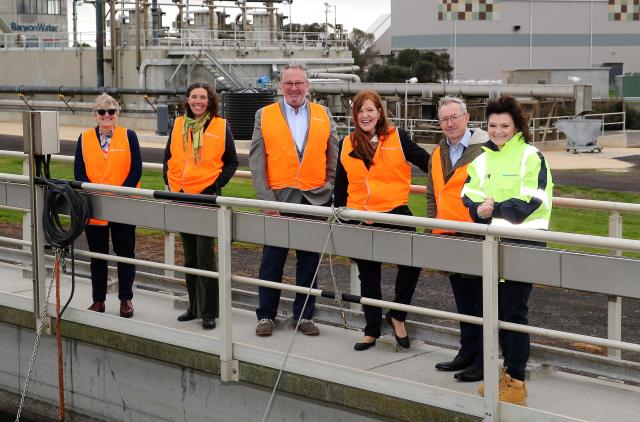
Barwon Water and four local councils are joining forces to transform organic waste into high value products for agriculture and at the same time generate renewable energy.
Barwon Water has signed Waste Supply Agreements with the Borough of Queenscliffe, City of Greater Geelong, Golden Plains Shire and Surf Coast Shire to take organic waste from kerbside collection and process it at the Regional Renewable Organics Network (RON) when it is built at its Black Rock Water Reclamation Plant in Connewarre.
The project has received support from the Victorian government with funding for the business case and leverages Barwon Water’s expertise and infrastructure as a manager of organic waste from wastewater, including biosolids.
The project will create jobs and keep downward pressure on Barwon Water and the participating councils’ costs, saving money for customers and ratepayers in the region.
Barwon Water Chair Jo Plummer said the Regional RON would deliver significant environmental, economic and community benefits for the region.
“The Regional RON is a key part of our response to the challenges of climate change and population growth. It has been enabled by new technology and a commitment to playing a leading role in the circular economy,” she said.
“The project will convert 40,000 tonnes of organic waste each year into 8000 tonnes of high-value soil enhancers, including biochar, to support local agriculture.
“Biochar has amazing properties that helps lock carbon into soils while helping them retain moisture, which will help make our regional farm soils more climate resilient.”
Ms Plummer said that as well as creating biochar, the processing of the waste would generate enough renewable electricity to power the equivalent of 500 homes and reduce the region’s carbon emissions by between 10,000 to 15,000 tonnes.
Ms Plummer said the Regional RON would boost the local economy by also creating 75 construction jobs and 36 ongoing jobs.
The project proposes the construction of a state-of-the-art and sustainable organics processing facility to be operational by mid-2025.






